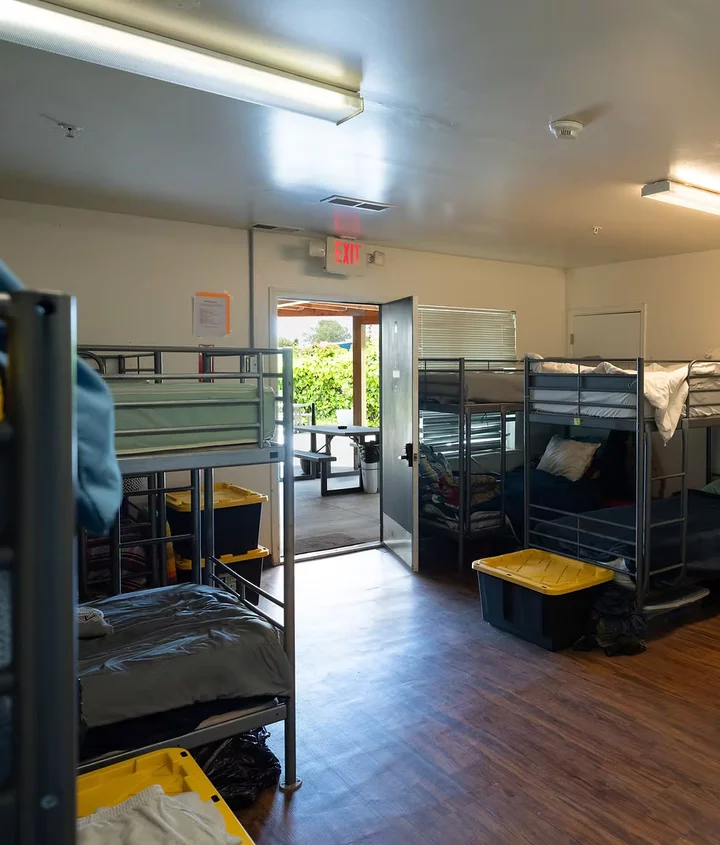An AHP shelter. Courtesy of AHP.
The Outpost reported some dire predictions last week for people dependent on the federal Housing and Urban Development’s (HUD) Continuum of Care funding. Although the outlook is grim, Robert Ward, the Housing and Assistance Coordinator for the Humboldt County Department of Health & Human Services, said in an interview it might be years before many of them are forced into the streets.
CoC funding houses 72 people in 64 households countywide, according to DDHS data. DHHS received $365,000 for the time period between Oct. 1, 2026, and Sep. 30, 2027 for permanent housing. The Arcata House Partnership, responsible for housing 31 of them, received $660,000. 211 Humboldt earned a much smaller $31,000 CoC grant for coordinated entry access services.
The new HUD directive forces CoC grantees to spend at most 30% of the funds on transitional housing, which allows for tenants to stay up to two years. Permanent housing, which currently makes up 91% of CoC spending county-wide, supports participants indefinitely.
Ward said the grants couldn’t be diced up and distributed piecemeal in an exact 30-70 split. Far more than 70% of the funding will be earmarked for transitional housing. They have until Sep. 30, 2027 to move the funds to transitional housing.
After that, Ward said there was a possibility DHHS and AHP could use that money for people currently depending on permanent housing — for two years, at least.
“That gets us to September 30, 2029,” Ward said. “Assuming Trump can’t actually win a third term, we’ll have a new administration, and we could have different leadership at HUD. If we’re able to pull off these transitions, we may not see people on the street immediately. It may take a few years, and there could be policy fixes in the intervening time.”
AHP executive director Darlene Spoor told the Outpost they were “absolutely” looking into using their transitional housing funds to keep people sheltered. However, she’s worried that AHP may lose funding from the politicized HUD because they’re not a faith-based organization, as well as California’s status as a sanctuary state. Spoor thinks that other, more disreputable organizations might use the opportunity and score more of the funding.
“People can stack up our progress to anyone. That’s not a concern to me,” Spoor said. “We are top-notch, running these programs. We have great results. I’m not afraid of that. But if we’re being compared to somebody that’s not in a sanctuary state, if they’re not doing the quality work that any of us in our CoC is doing — that concerns me.”
The CoC funding for permanent housing was also one of the most consistent sources of money service providers in Humboldt could depend on, said Ward. Most other grants aren’t awarded as frequently or aren’t as large.
The fallout from these policy changes would be far less severe if rent prices were lower, Ward said.
“The rent is just way too high for a certain percentage of people at the bottom of the income spectrum, and particularly people with severe disabilities,” Ward said. “…I don’t see how a lot of these folks can sustain housing without long-term support.”

CLICK TO MANAGE